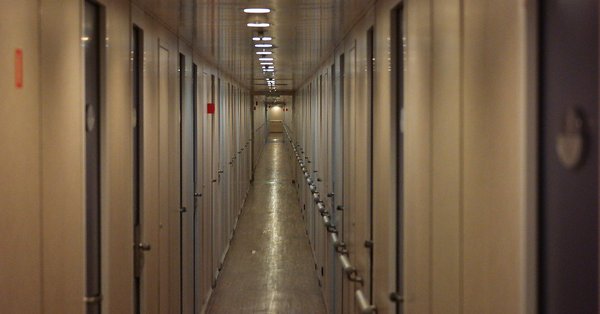Sterile living conditions onboard make hospitals look attractive: Mission To Seafarers

The Mission To Seafarers has hit out at today’s accommodation blocks, suggesting the sterile environment onboard ships nowadays make hospitals look attractive by comparison. The charity is running a series of articles at the moment based on findings from its regular Seafarers Happiness Index.
In a recent post entitled Seafarers Homes Fit for Purpose, the charity stated: “[S]hipboard living space has been consumed by the sterility of the cargo carrying concept. The frills have been removed, and seafarers are left to live and work in a place which can make a hospital look attractive.”
Flooring, panelling, deck heads, furnishing, all have gone the way of “function over form”, the mission observed. Repeatedly crew taking part in Seafarers Happiness Index described shipboard interiors as being “sterile” and “soulless” and that shared social spaces are not being sufficiently well designed or thought through.
“We talk of mental health, or isolation and lack of social cohesion – but according to seafarers we are not providing living environments which help solve the issues, in fact many say they are part of the problem,” the article posited, adding: “There is an erosion of pride in the profession of seafaring, and it seems that some of that is a reflection of the austere, rubber, plastic, composite, foam and chrome world which seafarers exist in.”
While the Maritime Labour Convention (MLC 2006) addresses many aspects of living spaces and arrangements, the mission described it is “a lowest common denominator” and the legislation has failed to capture the changes which could make life better at sea.
“The famed Swiss-French architect Le Corbusier referred to buildings as machines for living in,” the article observed, adding: “Well, ships are exactly that, a machine which people live in. There are concerns that the focus has gone onto the mechanical and not the organic, people need nice spaces.”
The issue of sterile living conditions leading to mental issues at sea has been highlighted for many years. Occasional Splash contributor, Bei Hong, in an opinion piece from five years ago, compared conditions onboard to budget motorway hotels.
“These establishments offer small, utilitarian accommodation with no more than the absolute basics – somewhere to sleep but certainly not somewhere you would want to spend any more time than is absolutely necessary,” Hong wrote in a widely read article that was subsequently used as research into conditions onboard ship by an Australian university.
“Of all the advances made in shipping in recent years, be they improving efficiency, safety or environmental protection, one area where we seem to have gone backwards is the environment we expect our crews to live in,” Hong wrote.
